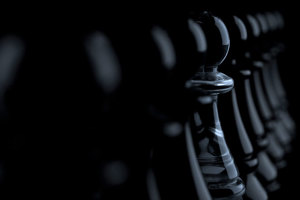PSV 1982 Limited v Langdon: A Warning for Directors in Breach of Section 216 Insolvency Act 1986
Subject to exceptions, a director of a company that enters into liquidation is restricted from being involved in the management of a new or existing company (SecondCo) with the same or a sufficiently similar name to that of the liquidating company (section 216 Insolvency Act 1986 (IA 1986)). If in breach of s.216, a director will have personal liability for all the relevant debts SecondCo incurred during the period of the breach under s.217 IA 1986.
A recent High Court ruling in PSV 1982 Limited and Sean Anthony Edward Langdon has now determined that a director in breach of s.216 will automatically be personally liable under s.217 for debts of SecondCo’s incurred during the period of breach and established in proceedings, to which the director was not a party.
Deputy High Court Judge Vos considered the risk of injustice to directors in breach of s.216 being held responsible for liabilities incurred in proceedings to which they were not a party against the risk to creditors who, in obtaining a judgment against SecondCo, could then be forced to incur further time, expense and risk establishing their claim again in separate proceedings against the director. This decision represents a significant shift in the interpretation of the legislation, with Deputy High Court Judge Vos concluding that Parliament had intended for ss. 216 and 217 to protect creditors and penalise defaulting directors.
He concluded that:
- the term “relevant debts” under s.217 IA 1986, when given its ordinary meaning, includes liabilities established by proceedings against SecondCo;
- once such liability is established against SecondCo, the defaulting director automatically becomes responsible for that liability, without the need for that responsibility to be established in separate proceedings against the director;
- it is also possible for creditors, or for the director themselves to apply for the director to be joined as a party to the proceedings involving SecondCo; and
- Parliament intended for the allocation of risk of injustice to lie with the defaulting director as opposed to the creditors.
This Judgment makes it clear that the purpose of s.217 is to protect creditors of SecondCo. Additionally, it is also worth noting that in this case, although the contract that was breached (resulting in SecondCo’s liabilities) was entered into before the director was in breach of s.216, the court held that he was still liable since SecondCo’s breach of contract, and therefore the point at which the liability was incurred, occurred during the period of the director’s breach of s.216. Finally, it was also acknowledged in the Judgment that a director who is not aware of proceedings against SecondCo but is nevertheless a party directly affected by a judgment against SecondCo, can apply to have that judgment varied or set aside. Directors can also apply for permission to be involved with SecondCo or avoid liability by falling within one of the statutory exceptions.
It would do well to remember that whilst mechanisms to protect against breach of s.216 exist, the implications of this Judgment should be noted and treated with caution to avoid automatic responsibility for unwanted personal liabilities for directors falling within the ambit of ss.216 and 217 IA 1986. The Judgment makes it clear that the legislation is intended to protect creditors as opposed to directors, who should therefore consider taking legal advice to ensure they are not at risk of breaching s.216 IA 1986, which in addition to the consequences discussed above, can result in criminal liability.



















